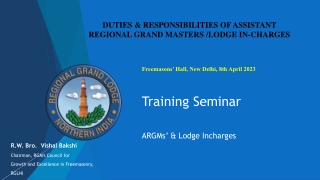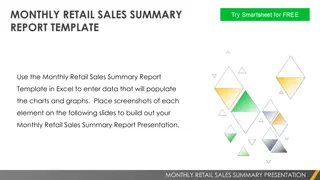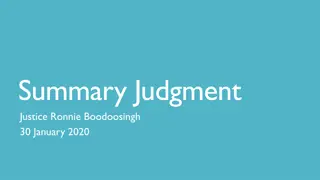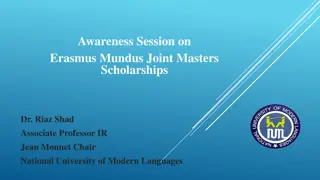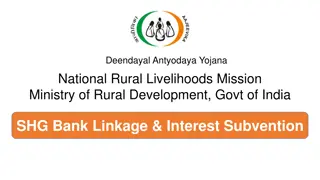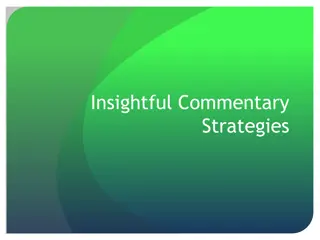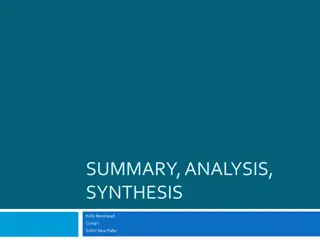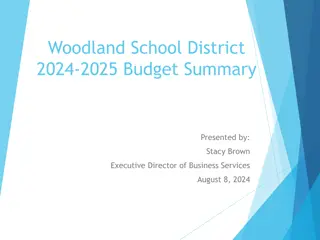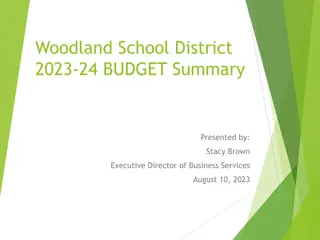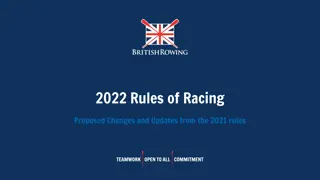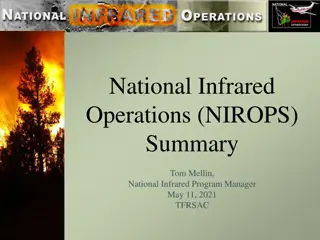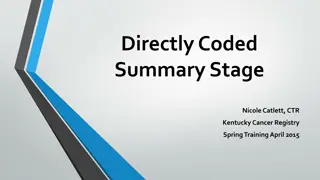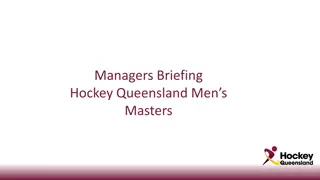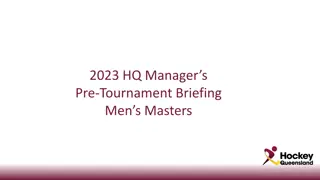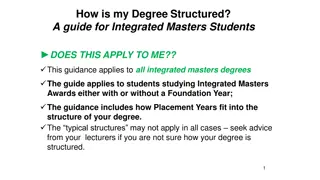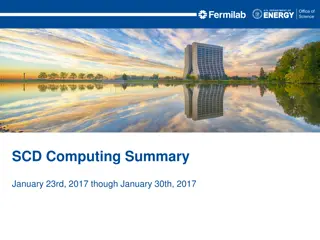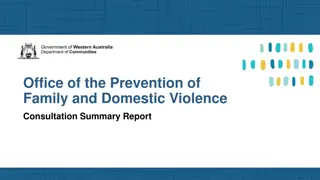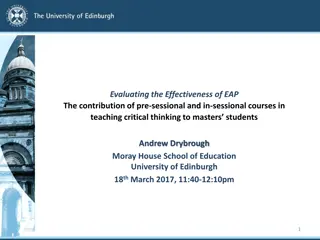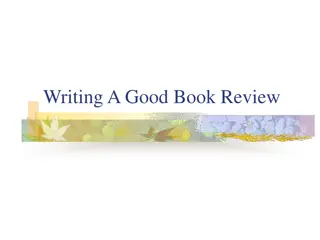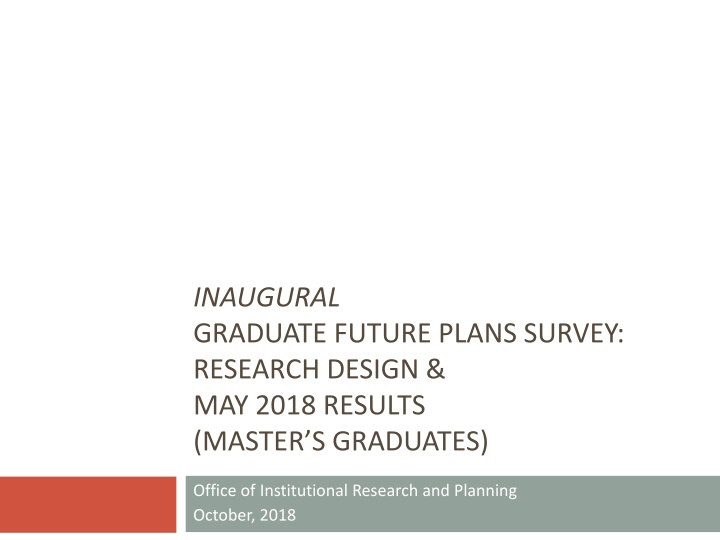
Graduate Future Plans Survey Research Design & Results May 2018
Learn about the Graduate Future Plans Survey and its development, administration, and results for master's graduates in May 2018. Explore the survey background, how it was created, who participated, and the valuable insights gathered for future planning.
Download Presentation

Please find below an Image/Link to download the presentation.
The content on the website is provided AS IS for your information and personal use only. It may not be sold, licensed, or shared on other websites without obtaining consent from the author. If you encounter any issues during the download, it is possible that the publisher has removed the file from their server.
You are allowed to download the files provided on this website for personal or commercial use, subject to the condition that they are used lawfully. All files are the property of their respective owners.
The content on the website is provided AS IS for your information and personal use only. It may not be sold, licensed, or shared on other websites without obtaining consent from the author.
E N D
Presentation Transcript
INAUGURAL GRADUATE FUTURE PLANS SURVEY: RESEARCH DESIGN & MAY 2018 RESULTS (MASTER S GRADUATES) Office of Institutional Research and Planning October, 2018
Survey Background What is the Graduate Future Plans Survey, how was it developed, how was it administered, and how are the results used?
What is the Graduate Future Plans Survey (GFPS)? 5 minute survey to collect detailed information from doctoral and master s students on: Future employment Company, location, job title, salary, helpful resources, when began job search Additional graduate/professional school Institution, program, degree, awards/scholarships Professional development at NC State Participation in and helpfulness of, use of career services and fairs Link to instrument
How was the survey developed? Fall 2010 Pilot administration of the Future Plans Survey of graduating seniors (UFPS) OIRP works with the Career Development Center and college career offices to develop an overall research design and questionnaire Spring 2011 UFPS questionnaire is revised following feedback from pilot Spring 2011 to present UFPS is administered semiannually
How was the survey developed? (continued) Spring 2018 - OIRP develops and administers a new version of the FPS questionnaire for doctoral and master s students Input collected from graduate students, the CDC, college career services offices, associate deans and directors of graduate programs Fall 2018 (coming) Graduate FPS will undergo revisions following feedback from pilot administration
Who was invited to participate in the inaugural May 2018 GFPS? All doctoral and master s graduates who completed the Application for Degree process to graduate in May were invited to participate Given that graduate students in the College of Veterinary Medicine (CVM) were already being asked to participate in a similar survey in Spring 2018, at the request of the college they were excluded from the GFPS this year.
When and how was the survey administered? When The survey went live on the second day of final exams (May 1, 2018) The survey stayed in the field for about 5 weeks (June 6, 2018) How Online (Qualtrics) Accessible via handheld mobile device Confidential (but not anonymous)
How were graduate students encouraged to participate? Email invitations and follow-up reminders Incentives Two respondents * $50 Amazon.com e-Gift cards Departments were encouraged to contact their graduate students
How many masters students did the GFPS in May 2018? May 2018 Graduating Master s Students Percent of Survey Respondents Percent of Population N of Survey Respondents Response Rate College/School College of Agriculture & Life Sciences 132 8.4% 70 6.5% 53.0% College of Design 50 3.2% 32 3.0% 64.0% College of Education 205 13.1% 148 13.8% 72.2% College of Engineering 486 31.1% 350 32.6% 72.0% College of Natural Resources 54 3.5% 41 3.8% 75.9% College of Humanities & Social Sciences College of Sciences 200 81 12.8% 5.2% 131 47 12.2% 4.4% 65.5% 58.0% College of Textiles 24 1.5% 18 1.7% 75.0% Poole College of Management Institute for Advanced Analytics 222 111 14.2% 7.1% 128 110 11.9% 10.2% 57.7% 99.1% Total 1,565 100.0% 1,075 100.0% 68.7% Note: Graduate students in the College of Veterinary Medicine (CVM) were not invited to complete the survey as the College was administering a similar survey to its CVM students during the same time period.
Were there differences by college in how many master s students did the GFPS in May 2018? 100% 99% % of Graduates Responding 80% 76% 75% 72% 72% 69% 60% 66% 64% 58% 58% 53% 40% 20% 0% Overall (N=1,565) CALS (N=132) Design (N=50) CED COE (N=486) CNR (N=54) HSS COS (N=81) COT (N=24) PCOM (N=222) IAA Number Graduating: (N=205) (N=200) (N=111)
How are the results used? Employers when making salary offers Graduate students engaged in salary negotiations Employers assessing the new graduate employment pool Career Centers matching job seekers with employers Identifying employers for career fairs Institutional rankings reported by organizations/magazines Assessment activities Career Centers programs and services Academic programs evaluation of career-readiness of graduates Outcomes (job placement, post-graduate enrollment, etc.) NC State Strategic Planning metrics
How do masters graduates feel about their future? The majority of master s graduates feel both excited and prepared for the future Fairly excited, 27% Somewhat prepared, 38% Very excited about what I will be doing, 70% Very prepared, 59% Not very excited, 2% Somewhat unprepared, 3%
What are the future plans of NC States masters degree recipients? 64% have a signed contract or confirmed employment plans by graduation, with most working full-time Part-time, 2% Employment (64%) Full-time, 62% Pursuing employment 32% 32% were seeking a position at the time of the survey, or were planning to do so 13% Further education Other plans 2% 13% plan to pursue further education in the coming year 0% 20% 40% 60% 80% 100% Note: Respondents could select more than one type of activity. For example, some graduates currently holding a job also said they were now looking for a new position.
Masters Graduates with Full-Time Employment (97% of all those with a job for after graduation) When did they start looking, what was helpful in getting a job, where will they be working, and what will they be earning?
Are masters graduates getting new jobs or continuing with the same employer? 52%of master s students with full-time employmenthave secured a new position to begin after graduation 2% have committed to an internship or clinical residency One-third will be working at a place of employment they obtained during their graduate program One-fifth will be working for an employer they had prior to pursuing their degree Note: Respondents could select more than one type of activity. For example, some graduates working in an internship or clinical residency also said they were continuing in a position they had obtained prior to graduation.
When do masters students start the job search process? (Among those accepting a full-time position at the time of graduation or duringtheir graduate program) 55% of master s graduates obtaining a full-time position indicated beginning their job search six or more months before graduation One-in-five started their search a year or more prior to graduation How many months prior to graduation started looking for work 12 or more months Less than 1 month 9-11 months 6-8 months 3-5 months 1-2 months 20% 17% 19% 38% 7% 1%
What resources did masters students say were helpful in securing their job? (Among those accepting a full-time position at the time of graduation or duringtheir graduate program) About 30% of master s students with full-time employment said LinkedIn and internships/externships had been helpful resources in their job search Helpful Resources Used in Job Search Internet: LinkedIn Internship/externship On-campus interviewing Campus or college career center Career fair at NC State NC State faculty member Family/friends/classmates/co-workers Personal/professional connection(s) within the company Employer info session on campus Applied for job via ePACK Consultation w/ NCSU Career Counselor/Coach Internet (Other than LinkedIn) Co-op experience Optional Practical Training (OPT) Professional association (members, conferences, publications, etc.) Student teaching experience Volunteer work Employer found resume on ePACK Staffing agency Career fair off campus Clinical placement Other Note that some resources may have in fact been helpful for those who used them, but have a smaller frequency overall because few respondents used that particular resource (e.g., staffing agency). % 30% 29% 25% 21% 19% 18% 18% 17% 17% 13% 11% 9% 9% 5% One-fourth indicated on- campus interviewing had been helpful 5% 3% 2% 2% 1% 1% 1% 6%
How many positions did they interview for? (Among those accepting a full-time position at the time of graduation or duringtheir graduate program) 41% of those with full-time employment had interviewed for five or more different positions during their job search Half interviewed for four or more different positions About one-fifth went on interviews for just one position 50% 40% 41% 30% 20% 18% 10% 14% 12% 9% 7% 0% None One Two Three Four Five or more N of Positions Interviewed For
How many job offers did masters graduates accepting a full-time job get? (Among those accepting a full-time position at the time of graduation or duringtheir graduate program) 54% of those finding full-time employment had more than one offer from which to choose, with one-fourth receiving two or more job offers in addition to the one they accepted One other job offer, 28% Only job offer, 46% Two other job offers, 13% Three or more other job offers, 13%
Do masters students staying with the same employer get a promotion or salary increase? (Among those who will be working full-time at a place of employment they had prior to graduation) 16% of master s students continuing to work in a position they had prior to graduation said they will get a salary increase contingent upon receiving their degree One-fifth said they will receive both a salary increase and a promotion/title change Salary increase only, 16% Promotion/title change, 3% Both a salary increase and promotion/title change, 19% None, 61%
How do masters students feel about the position in which they will be working? 97% of master s students with full-time employment said the position is either directly related (84%) or somewhat related (13%) to their field of study 88% said they are very satisfied or satisfied with the job they accepted
Where will they be working? 56% of May 2018 master s graduates with full-time employment will be working in NC, with 38% working in the Triangle NC: Other, 18% NC: Triangle, 38% US: Other, 24% CA, 9% VA, 5% SC, 3% TX, 3%
What are masters students earning and how are they getting paid? The majority are getting paid by salary only Over one-fourth of all master s graduates securing full-time employment estimate their annual salary to be $100,000 or more in the coming year, with an average of $78,776 Salary only, 66% How are they getting paid? Other 40% combinations, 13% 30% 27% Salary + performance bonuses, 21% 20% 21% 18% 10% 14% 10% 9% 2% 0%
What about other job offer incentives? Among those securing full time employment . . . 14% received company shares 34% received a signing bonus 56% estimated the value of the company shares to be $20,000 or more at the time they accepted the offer About half said the signing bonus was $10,000 or more
And what about a relocation package? About one-fourth of all those obtaining full-time employment were offered a relocation package; 59% of those finding work outside NC were offered a relocation package 28% 71% Triangle (n=240) 31% 39% 31% NC: Outside Triangle (n=116) 59% 30% 12% Outside NC (n=270) 27% 33% 40% Overall (n=626)` 0% 20% 40% 60% 80% 100% Yes No Not applicable
Masters Graduates Pursuing Employment (32% of all master s graduates, N = 341)
Did those who are pursuing employment go on any job interviews? (Among those who were actively seeking employment or negotiating with one or more organizations, N = 301) 71% of master s graduates pursuing employment had gone on at least one job interview during their most recent job search 36% had interviewed for three or more positions 100% 80% 60% 40% 36% 29% 20% 21% 15% 0% No positions One position Two positions Three or more positions N of Positions Interviewed For
Did those who are pursuing employment receive any job offers? (Among those who were actively seeking employment or negotiating with one or more organizations) 17% of master s graduates who had gone on an interview for one position said they had received one or more job offers In contrast, 42% who went on interviews for three or more positions said they received at least one offer 100% 80% 58% 74% 60% 83% 40% 42% 20% 26% 17% 0% Interviewed for: One position (n=59) Two positions (n=43) Three or more positions (n=101) Received an offer(s) No job offer(s)
Masters Graduates Pursuing Further Education (12.6% of all respondents; N = 134) Where are they going and what are they going to study?
How many masters graduates continuing their education have already been accepted into another degree program? At the time of the survey, halfof the master s graduates planning on returning to graduate/professional school were already enrolled in another degree program An additional one-fourth have been accepted to a program and know where they will be going Have not applied but plan to do so within the next year, 22% Have applied, but not yet been accepted, 2% Am already enrolled and pursuing the degree, 52% Have been accepted but undecided, 2% Have been accepted and know where I'm going, 23%
What is the next degree masters graduates are seeking? (among those already enrolled or who have been accepted and know where they are going) About three-fourths of those pursuing another degree will be enrolled in a Doctoral program, with the majority pursuing a PhD Those pursuing another master s degree will most commonly be enrolling in an MBA or MS program The professional degrees master s graduates report they will be seeking are a MD, DDS, JD, or DPT Professional, 7% Master's, 15% Doctoral, 78%
What institutions will they be attending? (among those already enrolled or who have been accepted and know where they are going) 86% will be staying in North Carolina Three-fourths will be continuing at NC State, including: 90% of those pursuing a doctoral degree One-third of those pursuing another master s degree
Professional Development Experiences at NC State (among all master s graduates) What did master s students do to prepare for the future?
In what work-related experiences did masters graduates participate? 100% 80% % Having Experience 60% 40% 41% 20% 20% 20% 16% 14% 13% 13% 12% 8% 1% 1% 6% 0%
How helpful was the work-related experience in securing a job? (Among those having had such an experience) 61% 29% 10% Internship (N=428) 16% 42% 42% Teaching assistantship (N=208) 53% 36% 11% Practicum (N=208) 67% 29% 4% Job in field of study (N=167) 29% 52% 19% Non-published/presented research (N=142) 18% 40% 42% Volunteer work (N=137) 25% 53% 22% Class project (N=136) 40% 39% 21% Research assistantship (N=130) 70% 25% 5% Co-op (N=86) 46% 37% 17% Student teaching (N=66) 54% 39% 8% Clinical placement (N=15) 100% Externship (N=6) 0% 20% Helpfulness of the Experience 40% 60% 80% 100% Very helpful Somewhat helpful Not very/Not at all helpful
How often do masters students publish or give professional presentations? 13% of all master s students published in a peer-reviewed journal or presented at a professional conference at least once during their program The majority of those who published or presented did so just once or twice Engagement in scholarship activity varied widely by college, with master s students in the colleges of Natural Resources (29%), Humanities and Social Sciences (26%), and Design (25%) more likely than those in other colleges to have published or presented at least once Number of articles or creative works published in a peer-reviewed journal 89% 12% Number of conference presentations on a research paper/poster/creative work 96% 4% 0% 20% 40% 60% 80% 100% None One or more
Who uses the career offices on campus? 45% of master s students went to an NC State college or campus services office at least once Attendance varied widely by college Overall, evaluations of the campus and college career services offices were very high 100% % Using an On-Campus Career Services 80% 72% 72% 60% 61% Office 60% 57% 40% 45% 38% 33% 20% 21% 18% 8% 0% NCSU (n=1,052) CALS (n=69) Design (n=31) CED (n=144) COE (n=341) CNR (n=39) CHASS (n=129) COS (n=46) COT (n=18) PCOM (n=127) IAA (n=108)
What professional development resources at NC State did master s students use? Career Services Resources: Graduate School Resources % % Using 43% 41% 33% 29% 26% 23% 19% 19% Using 1% 1% 3% ePACK Attended career fair Attended employer info sessions Presentations on resume writing, interviewing skills, etc Visited NC State Career Development Center website On-campus interviewing Mock interviews w/ Career Counselor/Coach Spoke w/ Career Counselor/Coach Joined professional society at NC State related to career field Accelerate to Industry (A2i) Preparing the Professoriate Obtained Teaching and Communication Certificate 17%
Which career fairs did masters students attend? (among those attending a career fair, N = 431) 41% master s graduates attended one or more career fairs while pursuing their degree Over halfof those going to any career fair said they had gone to NC State s Engineering Career Fair One-fifth reported going to NC State s Graduate School Career Fair % Attending 57% 20% Engineering Career Fair Graduate School Career Fair at NC State Poole College of Management Career & Internship Fair College of Education Career Fair Health Career Expo STEAM Career Expo CHASS Career Fair Textiles Job Forum Career fair at another college/university College of Design Career Expo or Spring Interview Days Other career fair at NC State Other career fair 14% 5% 5% 4% 3% 3% 3% 2% 9% 6%
Are masters graduates satisfied with the career guidance they got from their academic department? Two-thirds of master s graduates said they were very satisfied (32%) or satisfied (35%) with the career guidance they received from their academic department or college Very Dissatisfied, 1% Dissatisfied, 5% Very Satisfied, 32% Neutral, 27% Satisfied, 35%
There is LOTS more information online! Reports available at: https://oirp.ncsu.edu/surveys/survey-reports/studentalumni- surveys/future-plans-survey-and-survey-of-recent-graduates/ Methods and response rate information Overview report with tables and text summaries of each question for doctoral and master s respondents overall College Comparisons reports with tables for each question by college Department Summary reports for each college Table with results by department Response rate N with full-time employment N going to grad/prof school Salary (25th percentile, median, 75th percentile, average) Tables with employment information across the college Company, location, job title, helpful resources Tables with grad/prof school information across the college Institution, location, degree, program Academic program reports Point-and-click interface [http://apps.oirp.ncsu.edu/pgem]) Response rate, employment and graduate school information, salary statistics
Want still more information, or have a suggestion? Contact: Suzanne Crockett, Assistant Director for Survey Research Office of Institutional Research and Planning sacrocke@ncsu.edu Nancy Whelchel, Director for Survey Research Office of Institutional Research and Planning Nancy_whelchel@ncsu.edu


